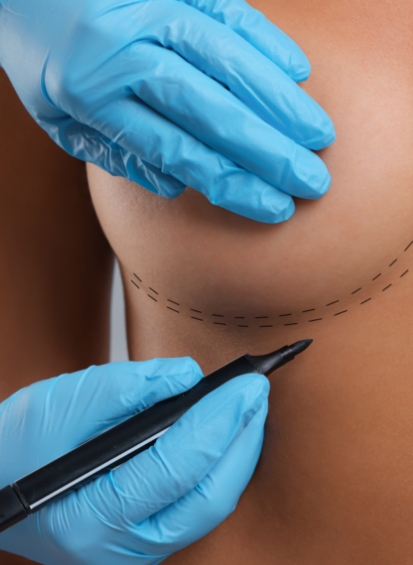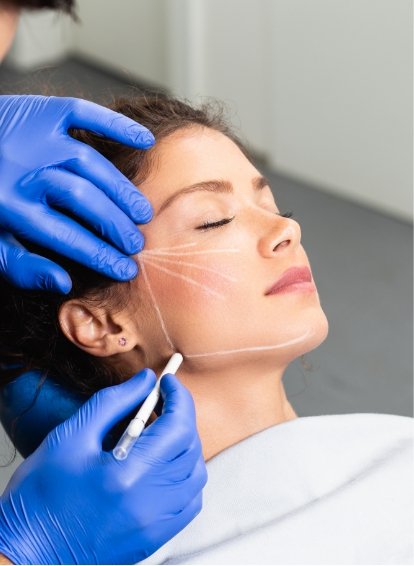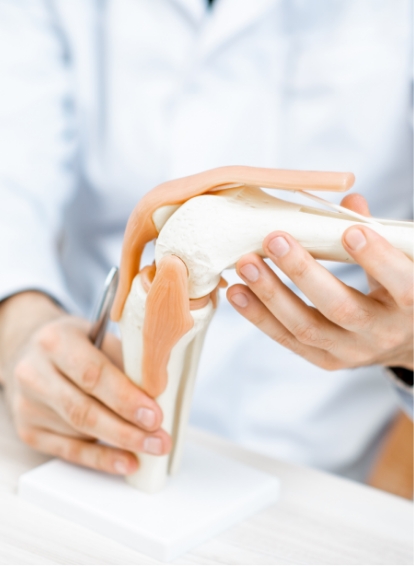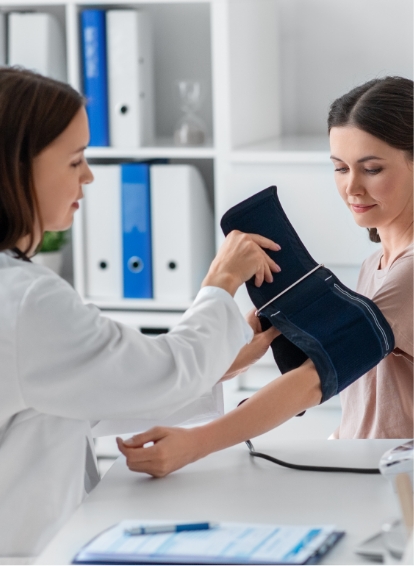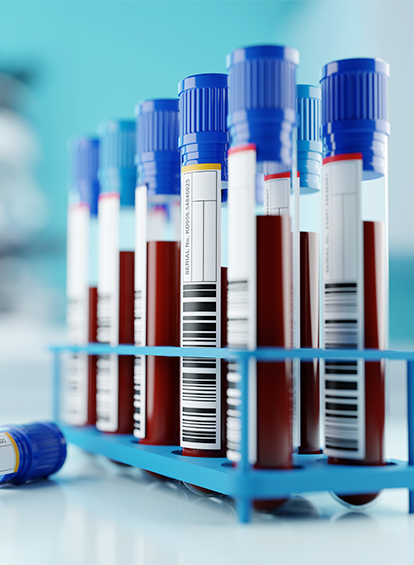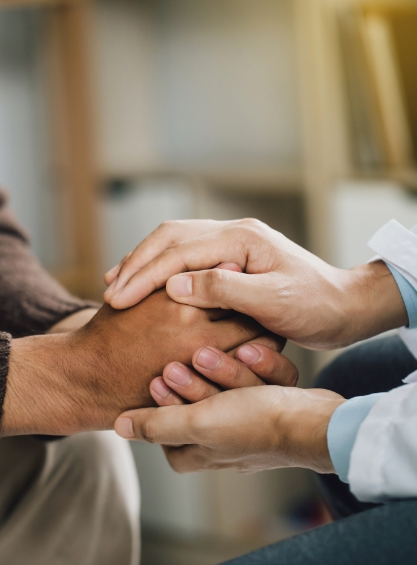Sports & Non-Surgical Orthopaedic Treatments
Knee Pain
Knee pain is a widespread issue that can be caused by injuries, overuse, or underlying conditions, such as arthritis. The knee is a complex joint that bears significant weight and undergoes repetitive stress, making it prone to pain and injury. Knee pain can range from mild discomfort to severe pain that affects mobility and daily activities.
At The Clinica, our specialists in Sports & Non-Surgical Orthopaedics provide tailored treatment plans for knee pain, helping patients relieve discomfort, restore joint function, and support long-term knee health.
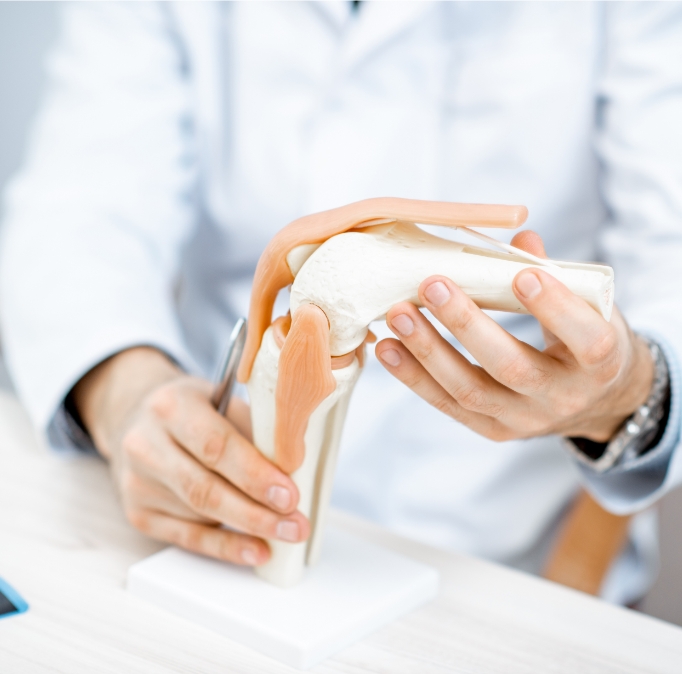
What is it?
Knee pain refers to discomfort or pain in the knee joint, which is made up of bones, cartilage, muscles, ligaments, and tendons working together to support movement. Pain in this joint can result from acute injuries, such as ligament tears, meniscus damage, or fractures, as well as from chronic conditions like osteoarthritis or tendinitis. The knee's weight-bearing role, combined with its involvement in a wide range of motion, makes it susceptible to wear and tear over time.
Symptoms of knee pain can vary depending on the cause and severity of the condition. Patients may experience sharp pain, swelling, stiffness, and a reduced range of motion, which can interfere with daily activities such as walking, climbing stairs, or exercising. In some cases, knee pain may radiate to the thigh or calf, particularly if nerve involvement is present.
Knee pain can be acute, lasting a few days to weeks, or chronic if it persists for months or years. Identifying the root cause of knee pain is essential for effective treatment, as different conditions may require specific management approaches to relieve symptoms and prevent further complications.
Book an appointment
Additional Information

Causes of the condition
The causes of knee pain can be broadly categorised into injuries, mechanical issues, and underlying medical conditions. Acute injuries, such as ligament sprains, meniscus tears, and fractures, are common causes of knee pain in athletes or individuals engaged in high-impact activities. These injuries often occur due to sudden trauma, falls, or twisting motions that strain or damage the knee structures.
Mechanical issues, such as patellar tracking problems, flat feet, or muscle imbalances, can also contribute to knee pain by placing abnormal stress on the joint. Over time, this can lead to conditions like patellofemoral pain syndrome, commonly known as “runner’s knee.”
Underlying conditions like osteoarthritis, rheumatoid arthritis, and gout are chronic causes of knee pain that lead to joint inflammation, cartilage degeneration, and stiffness. These conditions are more common in older adults but can affect individuals of any age, especially those with a family history or prior knee injuries.
Tests that can be done to confirm the condition
Diagnosing knee pain typically involves a physical examination, where the clinician will assess the knee’s range of motion, stability, and areas of tenderness. Observing the knee during various movements can help identify structural or mechanical issues. A thorough review of the patient’s activity level and medical history also helps in understanding possible contributing factors.
Imaging tests, such as X-rays, MRI, and ultrasound, are often used to confirm the diagnosis and assess the extent of damage within the knee. X-rays provide a clear view of bone alignment, joint space, and any signs of arthritis. MRI scans offer detailed imaging of soft tissues, including ligaments, tendons, and cartilage, making it easier to detect tears, inflammation, or degeneration. Ultrasound is particularly useful for identifying fluid accumulation and visualising dynamic movements within the knee joint.
In some cases, blood tests may be conducted to rule out inflammatory or autoimmune conditions, such as rheumatoid arthritis or gout, which may contribute to knee pain.
Effective treatments
Treatment for knee pain depends on the underlying cause, severity, and the patient’s lifestyle needs. Initial treatments typically include rest, ice application, and over-the-counter pain relievers to manage mild pain and inflammation. Modifying activities that aggravate the knee is essential to allow healing and prevent further strain.
Physical therapy is a key component of knee pain management, with exercises that strengthen the muscles surrounding the knee joint, improve flexibility, and correct imbalances. Strengthening the quadriceps and hamstrings helps stabilise the knee, reducing stress on the joint and supporting better function. In cases where posture or gait contributes to knee pain, ergonomic adjustments and gait training may be recommended.
Non-surgical treatments like corticosteroid injections can provide temporary relief from inflammation in cases of arthritis or chronic knee pain. Hyaluronic acid injections, which help lubricate the joint, are also effective for osteoarthritis, offering longer-term pain relief. For severe cases, particularly when structural damage is involved, surgery may be recommended, such as arthroscopic repair or knee replacement. Post-surgical rehabilitation is essential to restore mobility and strengthen the knee.
Book an appointment for an initial consultation
Booking an initial consultation at The Clinica is the first step toward diagnosing and managing knee pain effectively. During this consultation, our specialist will conduct a detailed assessment, discussing your symptoms, reviewing your medical history, and identifying any activities that may contribute to knee pain. A comprehensive physical examination of the knee joint will help determine the location and severity of the pain.
If necessary, imaging tests like X-rays, MRI, or ultrasound will be arranged to confirm the diagnosis and guide treatment. Following this assessment, a personalised treatment plan will be developed, focusing on pain relief, rehabilitation, and strategies to prevent recurrence, ensuring a structured approach to long-term knee health.
Frequently Asked questions
Recovery time depends on the cause and severity of the pain. Mild cases may improve within days to weeks, while chronic conditions or post-surgical recovery may take several months.
Yes, many cases of knee pain improve with non-surgical treatments like physical therapy, medications, and injections. Surgery is usually considered only for severe injuries or advanced arthritis.
Strengthening exercises targeting the quadriceps, hamstrings, and calf muscles, along with stretching, can help relieve knee pain and improve stability. A physical therapist can guide you on specific exercises.
Imaging tests such as X-rays or MRI are often recommended if the pain persists or if a specific diagnosis is needed to guide treatment.
Maintaining a healthy weight, strengthening the muscles around the knee, and using proper techniques during activities can help prevent knee pain from returning.
Specialised Clinics
General Enquiries
Please send your enquiry to us and our Practice Manager will be in touch shortly. Alternatively, if you would rather speak to us or your enquiry requires our urgent attention, please call us on 01344 946363.

